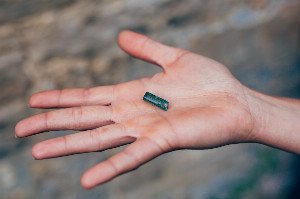Carmela Matrisciano, Elisa Pugliese, Pasqualina Forte, Cristiana D'Anna
PHYSICAL ACTIVITY AND DEVELOPMENT OF EXECUTIVE FUNCTIONS IN DEVELOPMENTAL AGE: A SYSTEMATIC REVIEW
Introduction
Physical activity and development of executive functions in developmental age: a systematic review. Systematic review explores how physical activity positively influences the development of executive functions, cognitive, and motor skills in children (5-14 years).
Abstract
Physical activity (PA) has a positive role in the development of executive functions (EF) in children, improving mental and physical well-being. This systematic review aims to investigate the impact of PA on EF, in developmental age, within different educational environments. This review analysed studies from 2000 to 2025 on children 5-14 years old, following the PRISMA guidelines.The results confirm the fundamental role of PA in promoting the development of both cognitive and motor skills in children.
Review
This systematic review addresses a critically important and timely topic concerning the interplay between physical activity (PA) and the development of executive functions (EF) in children of developmental age. The authors clearly articulate their aim to investigate this impact across various educational environments, which adds an interesting layer to the inquiry. The commitment to PRISMA guidelines and a focused age range (5-14 years) over a substantial period (2000-2025, though the latter end is unusual for a completed review abstract) suggests a robust methodological approach to synthesizing existing literature. The topic itself holds significant implications for both public health and educational policy. The review's principal finding, confirming the fundamental role of PA in promoting both cognitive and motor skill development, strongly reinforces current understanding and provides valuable evidence for advocating for increased PA in educational settings. While the abstract effectively highlights this core conclusion, it would benefit from elaborating on how the review specifically addressed its stated aim concerning "different educational environments." The abstract mentions this as an investigative target, but the results summary doesn't explicitly detail findings related to variations across these contexts. Further clarity on whether specific educational environments were analyzed, and if so, what differential impacts were observed, would significantly enhance the practical utility of the review. Additionally, the inclusion of "2025" in the search timeframe warrants clarification, as it typically refers to completed literature searches. Overall, this systematic review provides a valuable contribution to the literature, offering compelling evidence for the integration of physical activity into children's daily routines to foster holistic development. The findings have direct practical implications for educators, parents, and policymakers, underscoring the necessity of prioritizing active lifestyles to support cognitive and motor skill acquisition during crucial developmental stages. Future research could build upon these findings by exploring the specific mechanisms through which PA influences EF, investigating the optimal types and intensities of PA, and providing more granular insights into how interventions might be tailored for different educational settings as initially aimed by this review. This work serves as a solid foundation for continued efforts to promote children's well-being and academic success through physical activity.
Full Text
You need to be logged in to view the full text and Download file of this article - PHYSICAL ACTIVITY AND DEVELOPMENT OF EXECUTIVE FUNCTIONS IN DEVELOPMENTAL AGE: A SYSTEMATIC REVIEW from ITALIAN JOURNAL OF HEALTH EDUCATION, SPORT AND INCLUSIVE DIDACTICS .
Login to View Full Text And DownloadComments
You need to be logged in to post a comment.
Top Blogs by Rating
The Dopamine Dilemma: Rewiring...
By Sciaria
Deep Time's Echoes: Unearthing...
By Sciaria
Beyond Repair Shops: Unlocking...
By Sciaria
Favorite Blog
The Art of Unlearning: Educati...
By Sciaria
Electro's Hidden Frequencies:...
By Sciaria
The Geological Secret in Your...
By Sciaria
Related Research
The role of governance supervision on delays in audit reports of companies listed on the indonesian stock exchange
Combattre l’héritage du passé colonial ?
Are there really “tragic cases”?
Share
Notice Board
- THE CASE FOR A “GOOD FAITH BARGAINING” REQUIREMENT IN MINNESOTA’S NEW TENANT ASSOCIATION LAW
- MAJELIS SHOLAWAT AL-BANJARI: ETNO-RELIGIUS DAN IDENTITAS URANG BANJAR PERANTAUAN DI SERDANG BEDAGAI
- CYBERGOGY-BASED TRAINING FOR ENHANCING DIGITAL LITERACY TO SUPPORT INDONESIA’S GOLDEN GENERATION 2045 AT THE AISYIYAH COMMUNITY, BANGKALAN REGENCY





